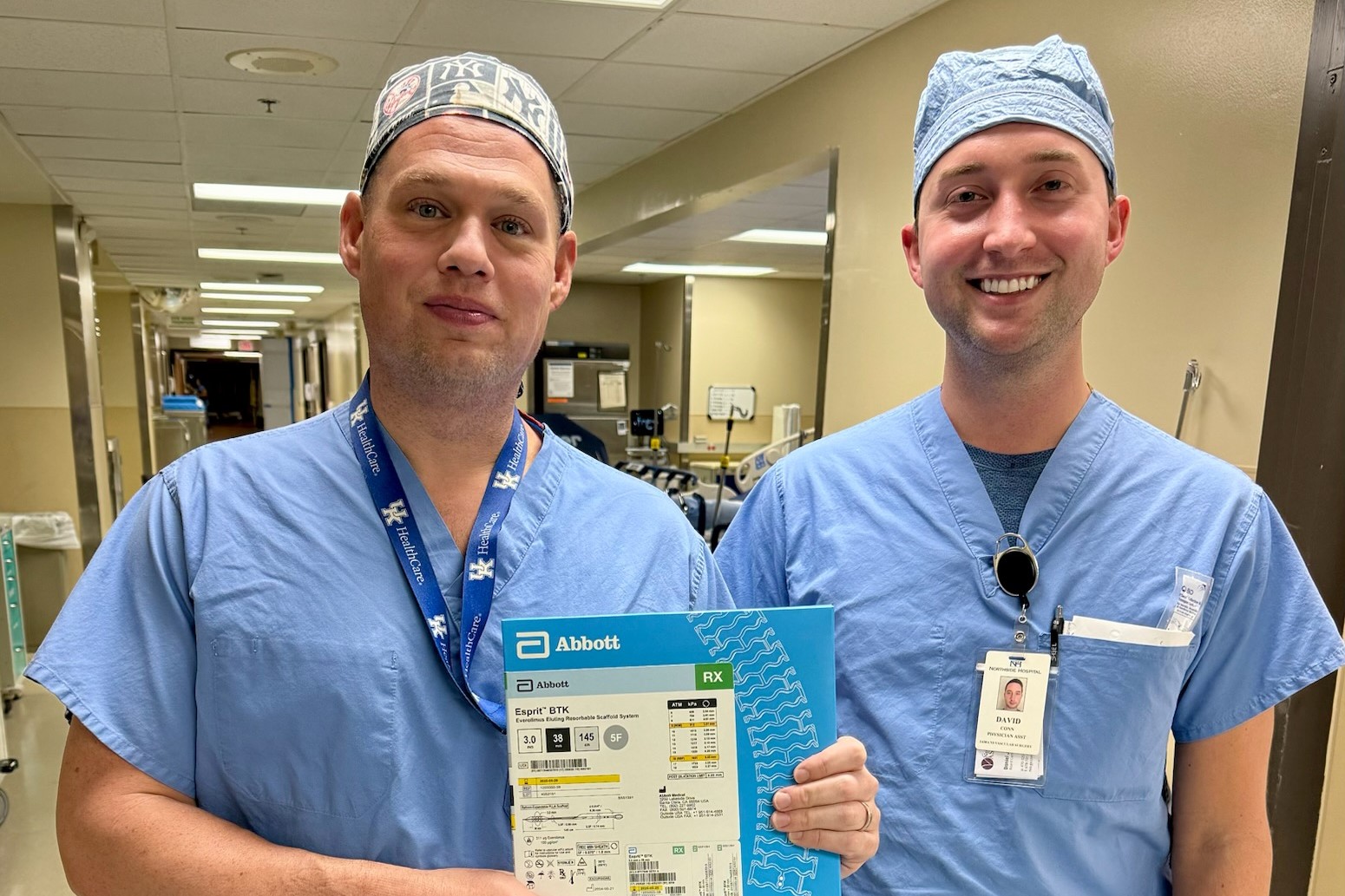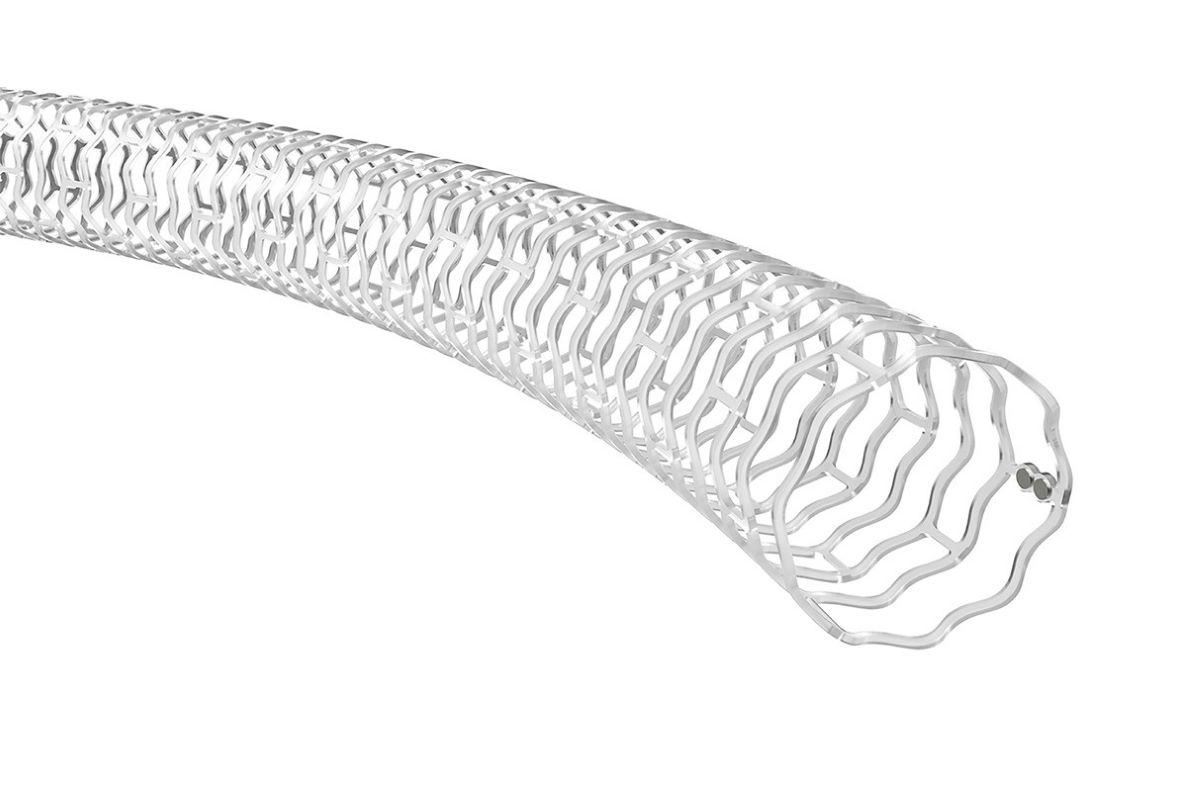
Northside Hospital Gwinnett recently announced the successful implantation of a first-of-its-kind dissolvable stent for patients with chronic limb-threatening ischemia (CLTI) below the knee (BTK).
The Esprit™ BTK Everolimus Eluting Resorbable Scaffold System (Esprit™ BTK System) was approved by the U.S. Food and Drug Administration (FDA) in April 2024 and is designed to keep arteries open and deliver the drug everolimus to support vessel healing before gradually dissolving. The system is made from materials similar to dissolvable sutures. Once the blockage is cleared, the device is implanted through a catheter-based, minimally invasive procedure. The scaffold aids in healing and supports the vessel until it can remain open on its own.
Dr. Daniel Badia, a vascular surgeon specializing in endovascular and open aortic repair, performed the hospital's first procedure on Oct. 16. This new treatment option supports vessel healing while reducing the risk of long-term complications, making it an essential advancement in treating chronic limb-threatening ischemia below the knee. With Abbott’s dissolvable stent, the Northside Hospital Heart Institute now offers patients the latest technology in managing this severe condition.
“A significant portion of patients have severe below-knee tibial artery disease,” Dr. Badia said. “If left untreated this often leads to significant debilitation and amputation. Up until this point, there has not been an FDA approved below knee stent or scaffold.”
“Abbott’s new Esprit bio-resorbable scaffold is a game changer for patients with significant tibial disease. Using this scaffold we are able to perform far more limb salvage than in the past,” he continued.
Chronic limb-threatening ischemia below the knee is an advanced form of peripheral arterial disease (PAD), a condition that arises when arteries become clogged with plaque, restricting blood flow and oxygen to the lower leg and foot.
In the United States, more than 20 million people live with PAD, though only 10% are diagnosed. PAD disproportionately affects Black and Hispanic communities, with nearly one in three Black adults and one in five Hispanic adults developing the disease.
Dr. Sesank Mikkilineni, another Northside Hospital Heart Institute vascular surgeon, has also performed this procedure on patients.
“There is a growing number of patients in this country with diabetes and chronic kidney disease,” Dr. Mikkilineni said. “These populations have a high incidence of peripheral arterial disease, particularly tibioperoneal disease, which involves narrowing or blockage of vessels below the knee.”

“These vessels are small, and when they become blocked, it often leads to amputation,” Dr. Mikkilineni continued.
“With the FDA-approved bioresorbable below-the-knee stent, Esprit, the Northside Hospital Heart Institute now has an invaluable new tool to help patients, reduce amputations and improve limb salvage rates in the communities and across the country. This innovative advancement is a crucial resource that will undoubtedly save countless lives.”
Learn more about the Northside Hospital Heart Institute.
Pictured: (l-r) Dr. Daniel Badia, a vascular surgeon, and David Conn, PAC.


